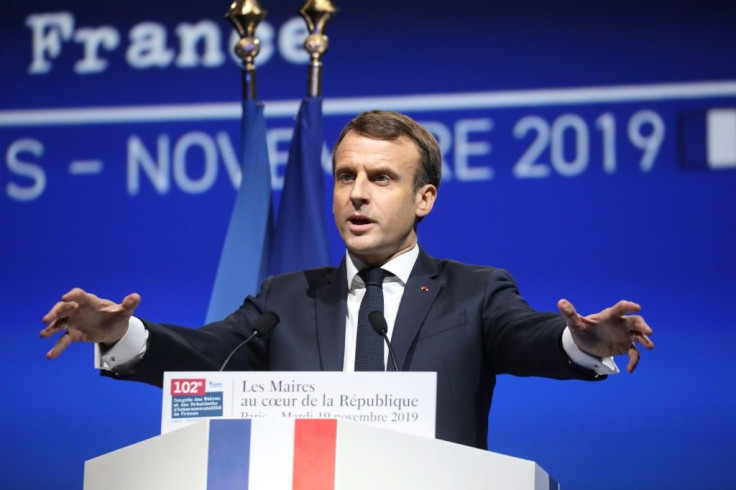NATO Brain Dead? Macron's Disruptive Style Rattles Europe

NATO is brain dead, it's time for a rapprochement with Russia and there can be no more EU enlargement for now: President Emmanuel Macron's abrasive foreign policy style has caused consternation in Europe and risks backfiring, analysts say.
Since his election in 2017, Macron has sought to find a major role on the international stage and implement his vision for a closely integrated Europe with a powerful France at its heart.
But some of his ideas have found little support from big EU powers -- notably Germany -- while the style of their delivery has left even the closest allies gnashing their teeth.
The tensions are set to be starkly underlined in the coming days as Macron hosts NATO chief Jens Stoltenberg for talks on Thursday and then attends a summit of the alliance in Britain next week.
"This is the Macron method," said Tara Varma, head policy fellow at the European Council on Foreign Relations in Paris.
"Instead of waiting for his partners, Macron is imposing his tempo and proposing new initiatives almost every week," she said, adding that at the very least he had "achieved his goal of stimulating and leading a debate on these issues".
Macron's style and method were exemplified by a remarkable interview with the Economist published on November 7 where he stated that:
-- NATO is undergoing "brain death" due to there being "no coordination whatsoever of strategic decision-making between the United States and its NATO allies."
-- Europe must "reconsider our position with Russia" under President Vladimir Putin "if we want to build peace".
-- The EU will "disappear" if it cannot think of itself as a world power amid the increasing risk of a bipolar world led by a "G2" of China and the US.
-- Macron defended blocking EU membership talks with North Macedonia and Albania and described Bosnia-Herzegovina as a "time-bomb" due to the large number of returning jihadists.
"It was profoundly discourteous. This is enough to assure immediate enmity," commented Francois Heisbourg, a special advisor at the Foundation for Strategic Research.
He added: "I understand where Macron is coming from but I am not sure he knows very well where he is going," comparing him to a breakaway rider in the legendary Tour de France cycle race.
Some analysts are also scathing about the substance of his arguments, with Jonathan Eyal, associate director at the Royal United Services Institute for Defence and Security Studies, saying he had "developed a disconcerting tendency to speak first, and only think later."
One of Macron's most cherished ideas is serious European defence cooperation, with The Economist interview appearing to indicate he believes this could even one day replace NATO.
"Trying to exploit one to improve the other is wrong and doomed to fail. Macron's statements about NATO will not help improve European defence cooperation," Jorge Benitez, non-resident senior fellow at the Atlantic Council, told AFP.
"They have instead weakened NATO further and emboldened Putin."
French officials acknowledge that the interview and comments on NATO -- which German Chancellor Angela Merkel described as "drastic" -- sent shock waves around European capitals.
But they argue that such tactics are required at a time when change is needed with states looking to France for leadership as Britain prepares to leave the EU and Merkel plans to relinquish power.
"What aroused reactions in Europe is the method and the form," said a French diplomatic source. "But the electric shock worked" by forcing a debate on the strategy of NATO and reinforcing European defence, the source added.
Some German officials have also suggested that Berlin needs to assume more of a leadership role, even as a weakened Merkel battles declining popularity at home and accusations of being a lame duck as she prepares to leave office in 2021.
"Rather than being repairers, we could be the providers of Franco-German ideas," said the head of the foreign affairs committee of the German Bundestag, Norbert Roettgen.
Jan Techau, senior fellow at the German Marshall Fund of the United States, said the French president was using the same style as US counterpart Donald Trump by using "turmoil" as a way to cure the ills of the global order.
But he added: "If Macron believes that disruption would bring Europeans closer together, he is almost certainly wrong."
© Copyright AFP 2024. All rights reserved.




















